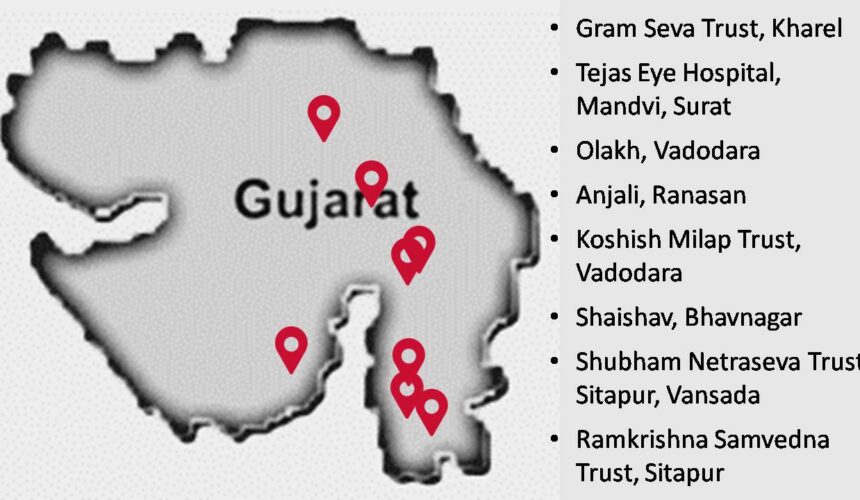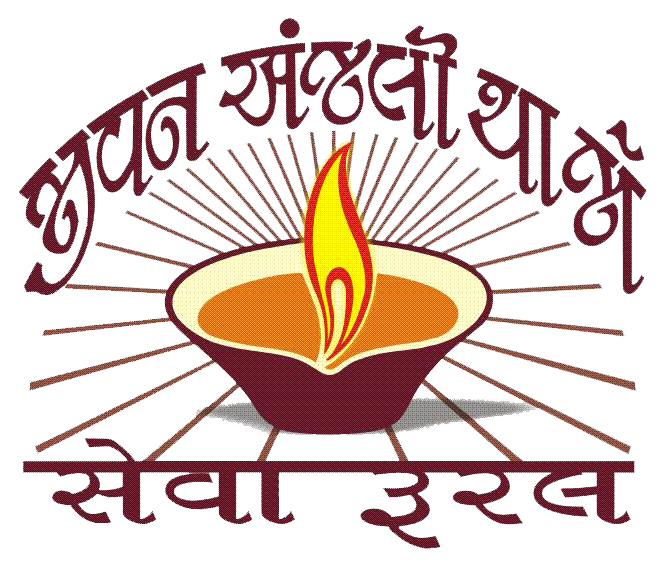IMPACT SINCE 1980
- 27 Lac patients, mostly from poor-tribal families, have received high quality treatment for free of cost or at a discount. More than 6000 women give birth to their children in the hospital every year.
- Maternal mortality rate and Infant mortality rate has been reduced significantly by 75% and 38% respectively in Jhagadia through a community based maternal and newborn care at their doorstep.
- Various eye operations have brought back eye-sight for 1,27,000 people.
- 956 visually challenged people were academically and professionally rehabilitated on community level.
- Youths of 3,500 poor families received a year-long residential training in the field of industry and character building, after which 95% of these youths were provided with employment to help them rise above the poverty line.
- 1500 deprived women were empowered by Sharada Mahila Vikas Society for various financial and academic programs.
- 13,000 children have been provided with extra school coaching on holistic education preparing them for becoming responsible future citizens.
- Our training programs have benefitted 26,378 workers of over 130 organisations all over the world.
- SEWA Rural’s research articles on Public health have been published in recognized magazines and some experiments have also been propagated throughout the nation. Some of our innovations have been scaled up.
- SEWA Rural developed new products as well as new processes for improving health service delivery. Following is a list of such selected innovation.
| Innovations | Description | Impact and scale up |
| Adoption of a primary health center by NGOs as public-private partnership (1985-2000) | For the first time in history, the state government handed over one PHC under a unique NGO-GO Partnership and on 100 % grant in aid basis. SEWA Rural successfully managed the total health care responsibility of one Primary Health Centre (PHC) covering 40,000 population for almost 15 years. | The project achieved most of the targets of “Health for All” by 2000 AD much earlier and sustained them over a period of time.
After the successful experiment, many other NGOs adopted PHCs and CHCs in the entire country. One such example is Karuna trust which has adopted PHCs in many states and doing exemplary work. |
| Weekly vaccination days (1985-2000) | SEWA Rural started weekly vaccination days in 1980s. The aim was to mobilize health teams and community in an effective and campaign mode for improving vaccination coverage. | Vaccination rates improved sharply in the project area.
Eventually, weekly vaccination days were adopted as “village health and nutrition days” (VHND) in the entire country. |
| Safe delivery kit (1985-2010) | Many deliveries were occurring at home in unsterile conditions. SEWA Rural developed a delivery kit and was an early adopter of safe and sterile delivery kit. Such kits were used during home delivery. | The kit was later adopted by the government and became part of birth preparedness in Gujarat and beyond. |
| Kangaroo Jholi | Low birth weight (LBW) babies are at risk of complications. Kangaroo mother care (KMC) is an effective method to manage LBW babies. SEWA Rural developed a special kangaroo jholi (bag) to facilitate KMC | Many NGOs and district governments are now actively using kangaroo jholis. |
| Infection control protocols and training modules for eye operation theatre (2005-2007) | Eye operation theatres are at higher risk of cluster infections after cataract surgeries. SEWA Rural developed an infection control protocol and training tools. | These protocols are widely used at state and national levels and NGOs. |
| ImTeCHO mobile phone application (2013- Present) | ImTeCHO is a mobile phone and web application for ASHAs, ANMs and their supervisors. It was developed by SEWA Rural and Argusoft India Ltd and piloted in 500 villages in SEWA Rural | The Gujarat state has scaled up ImTeCHO (now called TeCHO) across its entire 6.5 crore population. Every year, 1.4 million new pregnancies, live birth as well as 5.5 million under five children are tracked thru TeCHO. Government of Uttar Pradesh is using the platform as eKavach and covering entire population of 240 million. |
| Fixed day for FP operation | SEWA Rural had started fixed day per week for family planning operation while running primary health center. | This strategy worked out successfully as community can avail services and staff knew when to refer the patients. Afterwards Government also made this change in their strategy. |
| Menstrual hygiene kit | This is MHM kit having reusable flannel cloth pads, soap, brush, clips ,pain killer tablets, information booklet and closed cloth bag to store all material. |
This is very handy and useful for girls. It prevents infection and IEC material inside empowers them. Many NGO’s have accepted and using this. SHG women prepare this kit and also earn from it. |
Many young professionals started NGOs after working at SEWA Rural. Their work areas are in child rights, women rights and health. Additionally, there are many individuals who are working in different capacities across the country

This way, Service, Research, Training and Women Empowerment has become a unique amalgamation in SEWA Rural.
Apart from these activities, we are proud of our ways of working that include preservation of values, transparency, non-discrimination, safety of women and collective leadership. The Founders have made the organization long lasting and lively by making space for the next generation to take the lead. By virtue of self-development of workers and familial/friendly work environment, year after year SEWA Rural continues to be chosen as “Great Place to Work”. SEWA Rural represents a unique confluence of spiritual outlook and scientific approach.

